Roman Warships
£3.00
This lesson looks at the warships, especially the triremes, used by the Romans in their invasion of Britain in 55 BC. It also considers the fact that the Romans were brilliant copycats.
As well as English and history skills the Evidence-Based Learning skills developed in this lesson includes collaborative learning. This lesson also offers pupils the opportunity to master peer teaching.
Description
Each evidence-based learning (EBL) Roman history resource in this set is a complete lesson which uses the history curriculum as a framework through which each of the eight EBL skills can be mastered. Each resource has “mastering” one EBL skill as its central focus and all eight EBL skills are covered more than once in these lessons.
All eight EBL skills are better gained working with a partner so much of the work in these lessons is collaborative. These resources will ensure that pupils can master and use EBL skills regardless of their ability.
Each Roman history lesson will develop a single EBL skill through:
1) A “Before You Start” page that introduces the EBL skill.
2) Opportunities to master this skill during the lesson.
3) An “After You Finish” page that offers pupils the chance to evaluate their learning experience (of the lesson and the EBL skill) and to identify their next step in using the EBL skill.
The skills in bold below are all the EBL skills developed in this Roman lesson. Click on each skill to learn more about that skill.
- Collaboration
- Thinking Skills
- Peer Assessment
- Peer Teaching
- Self-Assessment
- Metacognition
- Self-Regulation
- Independent Learning
1 review for Roman Warships
Only logged in customers who have purchased this product may leave a review.
Related products
-
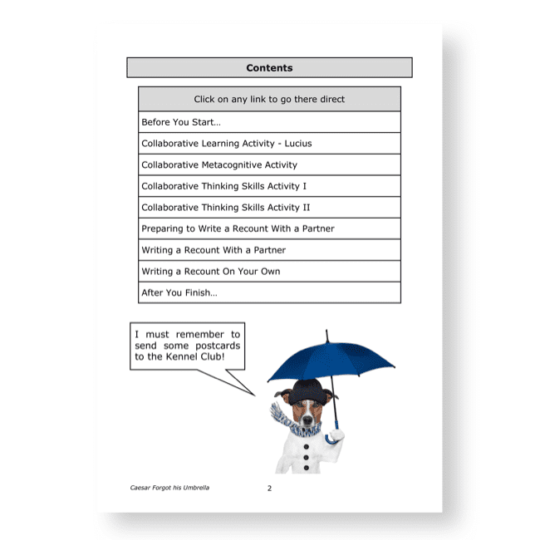
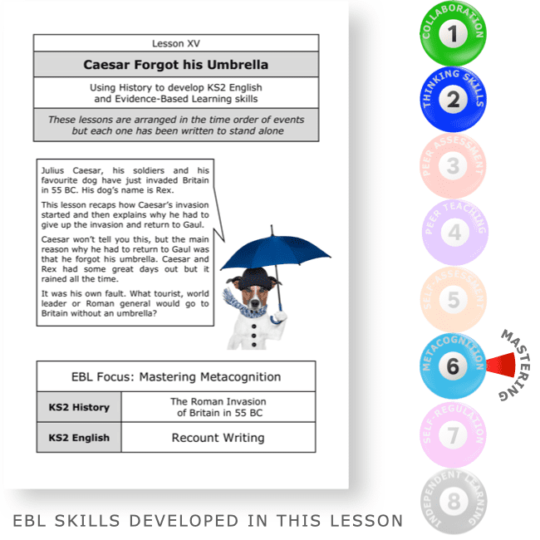
Caesar Forgot His Umbrella
£3.00 Add to basket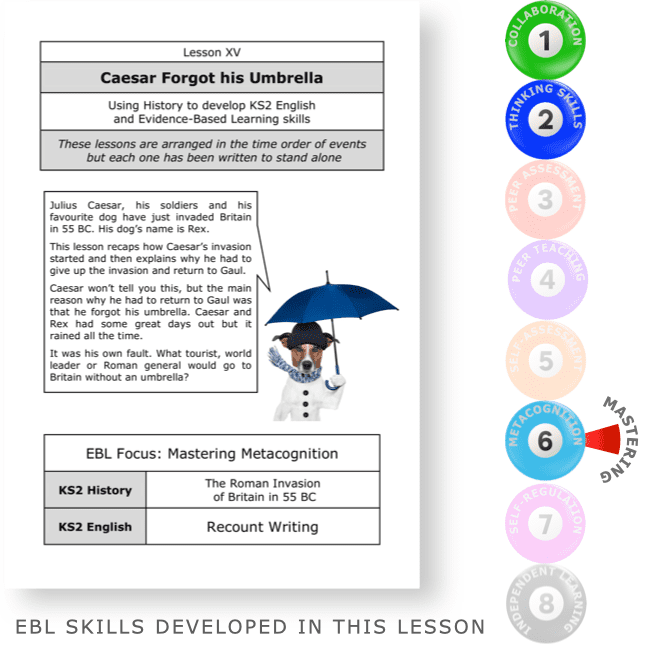 £3.00Add to basket
£3.00Add to basketJulius Caesar, his soldiers and his favourite dog have just invaded Britain in 55 BC. His dog’s name is Rex. This lesson recaps how Caesar’s invasion started and then explains why he had to give up the invasion and return to Gaul.
Caesar won’t tell you this, but the main reason why he had to return to Gaul was that he forgot his umbrella. Caesar and Rex had some great days out but it rained all the time. It was his own fault. What tourist, world leader or Roman general would go to Britain without an umbrella?
As well as English (writing a recount) and history skills the Evidence-Based Learning skills developed in this lesson include collaborative learning and self-assessment. This lesson also offers pupils the opportunity to master metacognition.
VIEW -

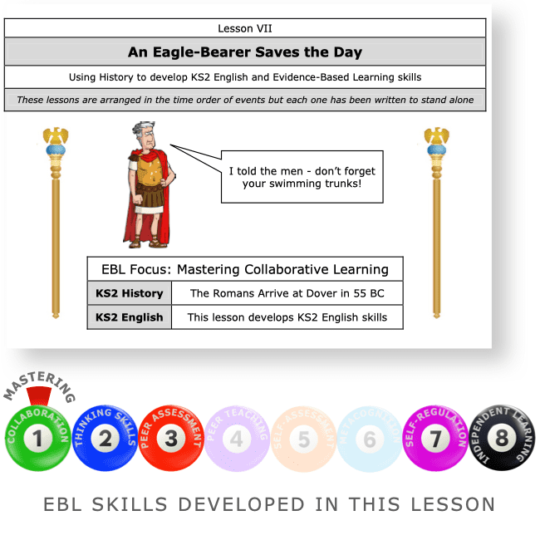
An Eagle-Bearer Saves the Day
£3.00 Add to basket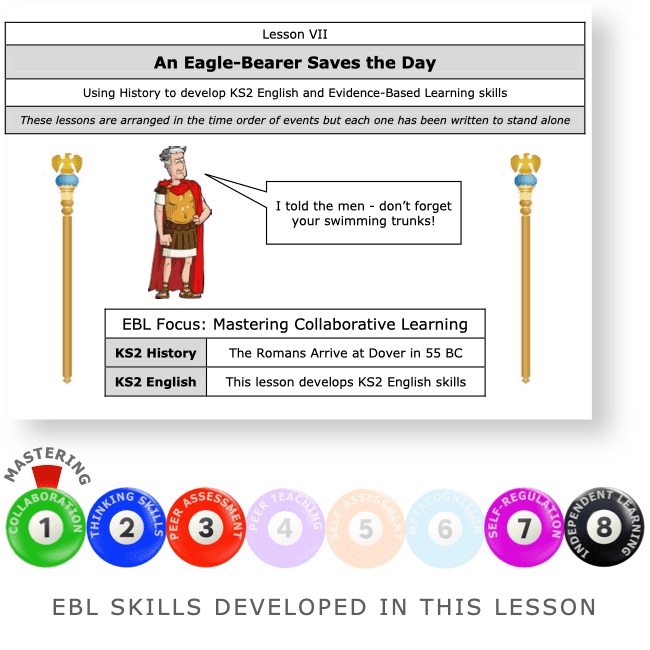 £3.00Add to basket
£3.00Add to basketJulius Caesar has just crossed the English Channel to invade Britain in 55 BC. He had to find another beach to land his soldiers on as the first beach that he sailed to (Dover) had fierce Britons waiting on the cliff tops and was too narrow.
When his ships arrived at the next beach, they could not get close to the shore, so he ordered his men to jump off the ships into the sea and wade ashore. When the order to jump was given, the men refused to jump. However, one soldier, an eagle-bearer, encouraged the others to jump in after him – and they did. Without him, the invasion might not have taken place.
As well as English and history skills the Evidence-Based Learning skills developed in this lesson include independent learning, thinking skills and self-regulation. This lesson also offers pupils the opportunity to master collaborative learning.
VIEW -
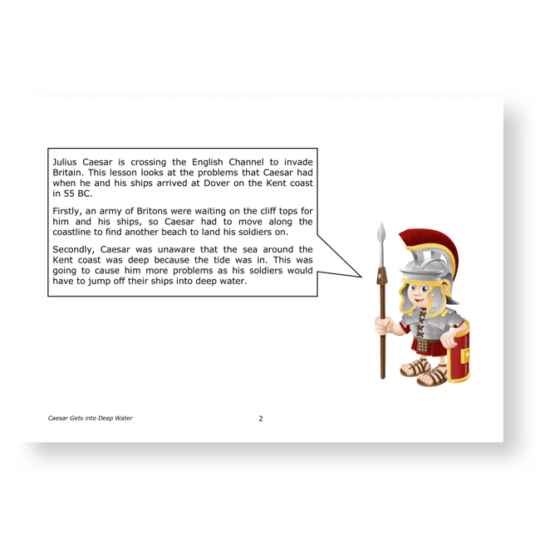
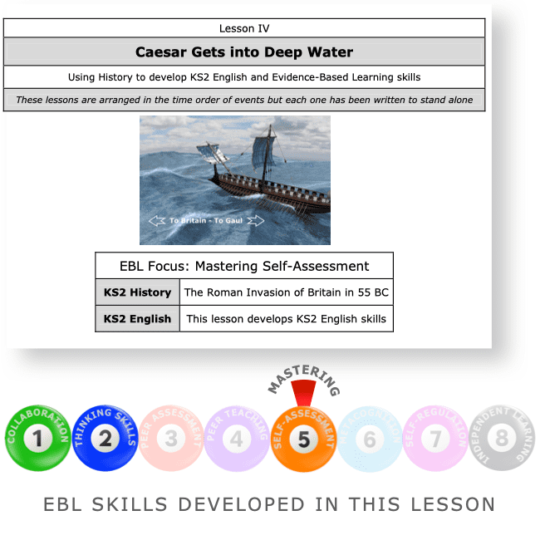
Caesar Gets into Deep Water
£3.00 Add to basket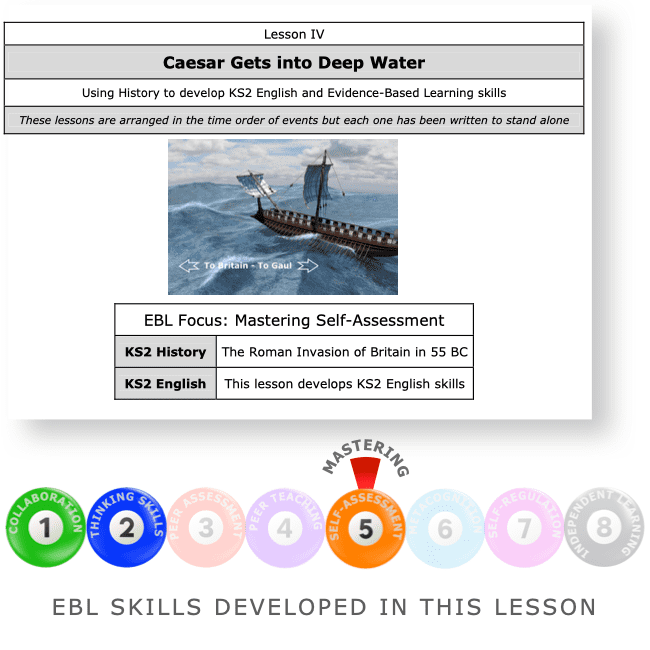 £3.00Add to basket
£3.00Add to basketJulius Caesar is crossing the English Channel to invade Britain. This lesson looks at the problems that Caesar had when he and his ships arrived at Dover on the Kent coast in 55 BC.
Firstly, an army of Britons were waiting on the cliff tops for him and his ships, so Caesar had to move along the coastline to find another beach to land his soldiers on.
Secondly, Caesar was unaware that the sea around the Kent coast was deep because the tide was in. This was going to cause him more problems as his soldiers would have to jump off their ships into deep water.
As well as English and history skills the Evidence-Based Learning skills developed in this lesson include collaborative learning and thinking skills. This lesson also offers pupils the opportunity to master self-assessment.
VIEW -


Even More Problems for Caesar
£3.00 Add to basket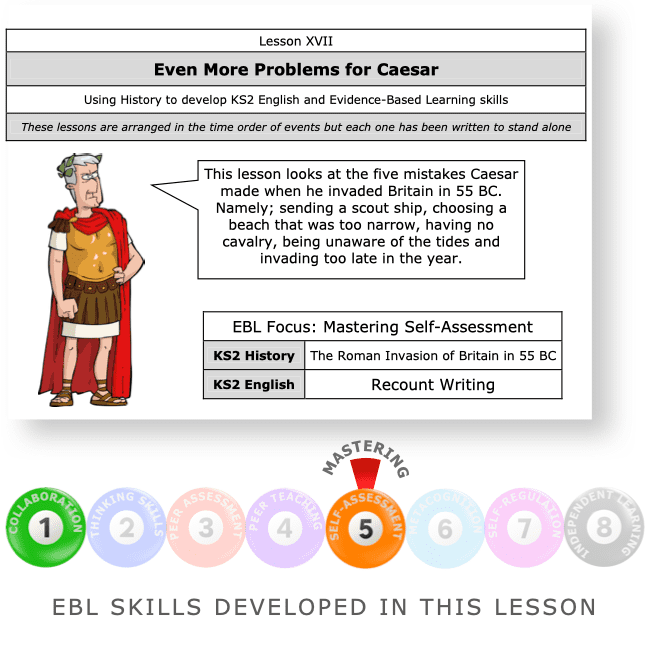 £3.00Add to basket
£3.00Add to basketThis lesson looks at the five mistakes Caesar made when he invaded Britain in 55 BC. Namely; sending a scout ship, choosing a beach that was too narrow, having no cavalry, being unaware of the tides and invading too late in the year.
As well as English (writing a recount) and history skills the Evidence-Based Learning skills developed in this lesson includes collaborative learning. This lesson also offers pupils the opportunity to master self-assessment.
VIEW

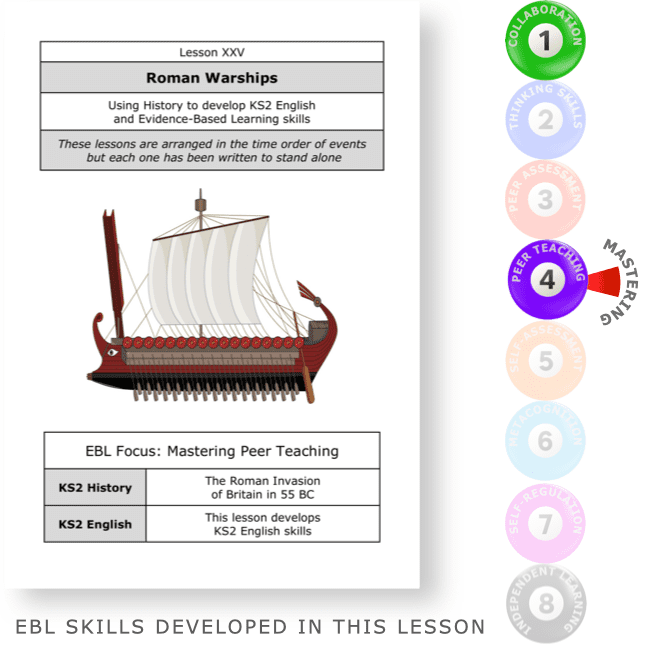
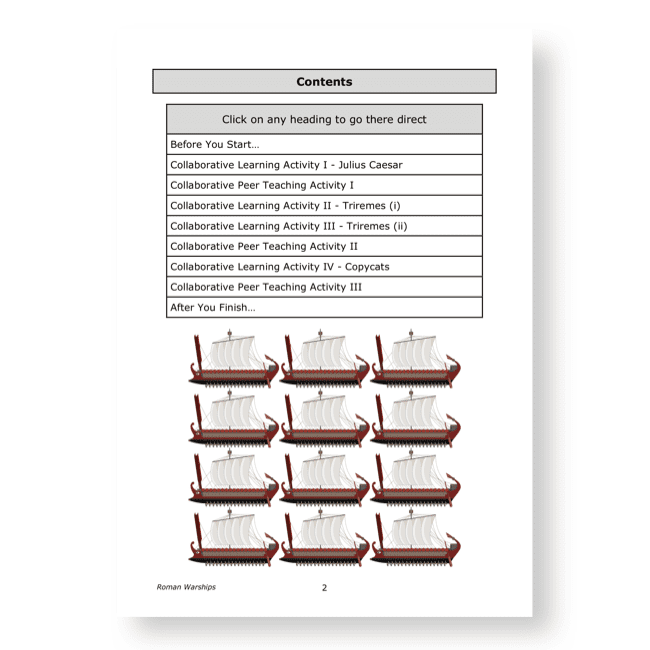
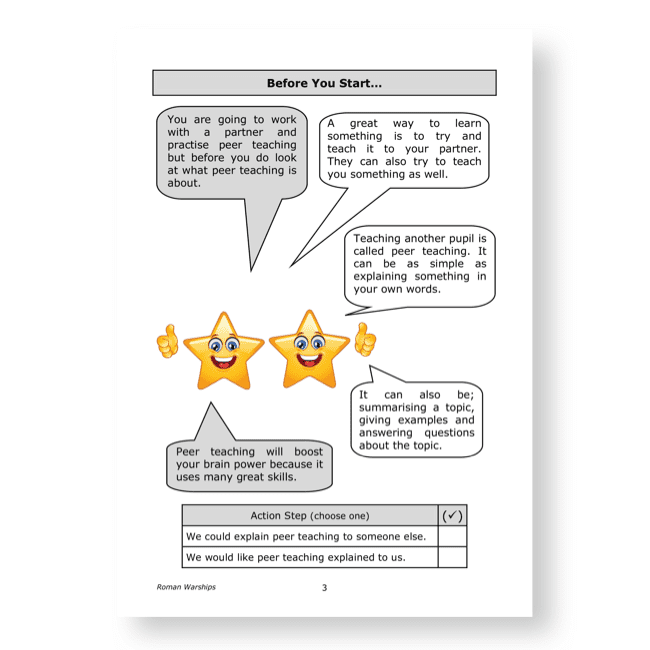
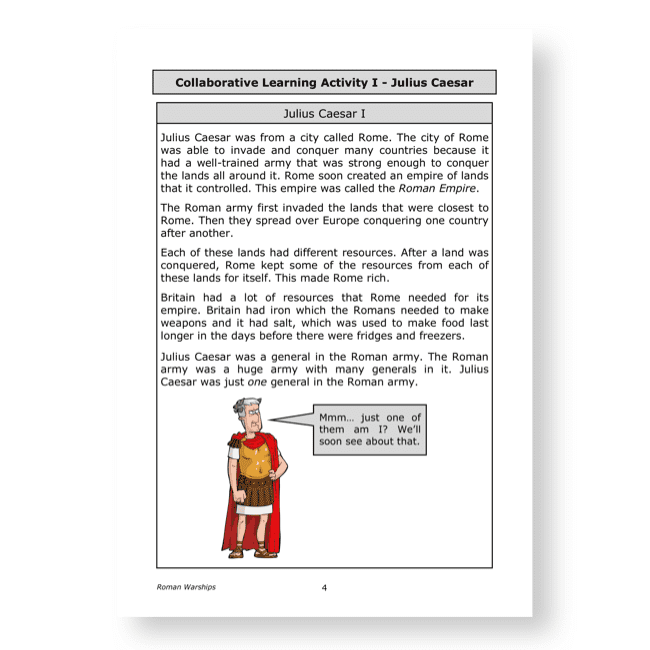
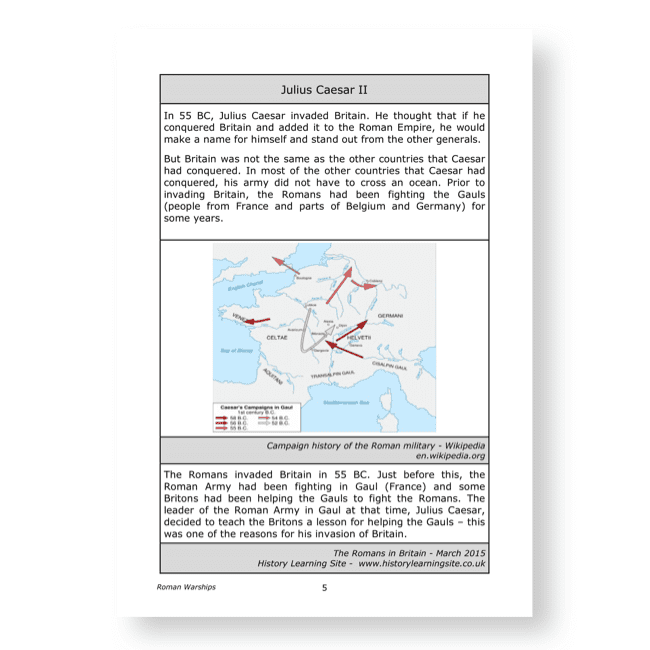
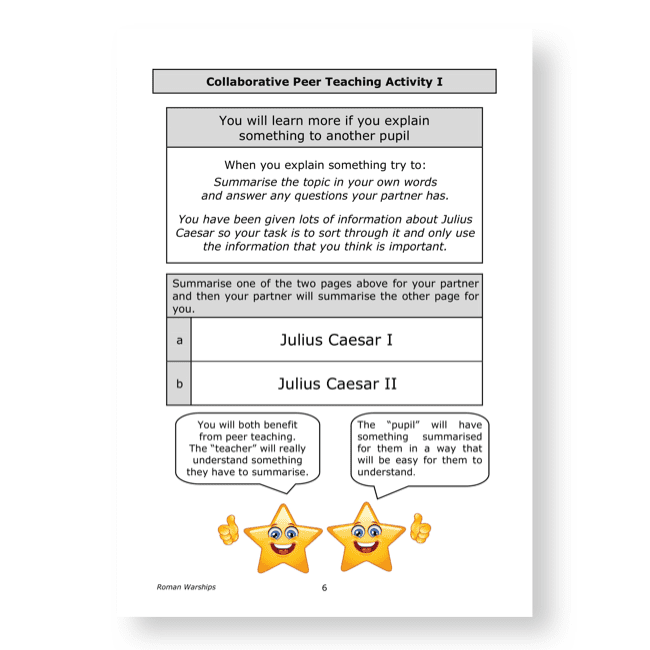
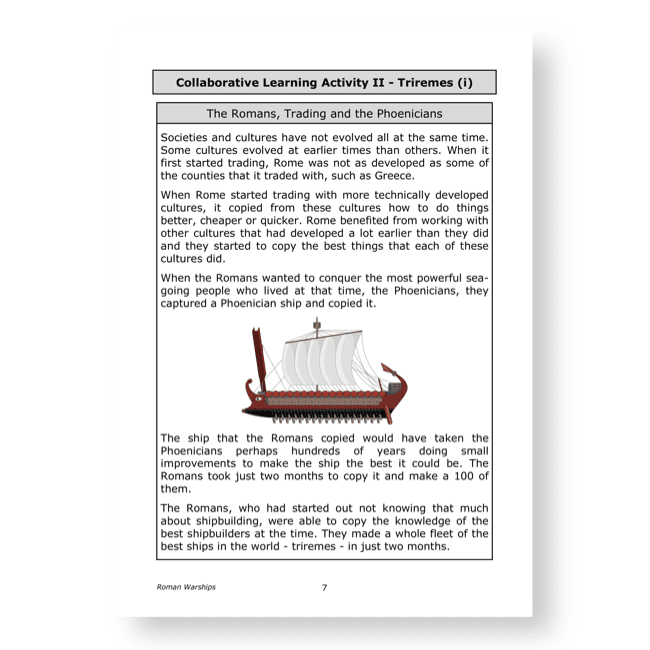
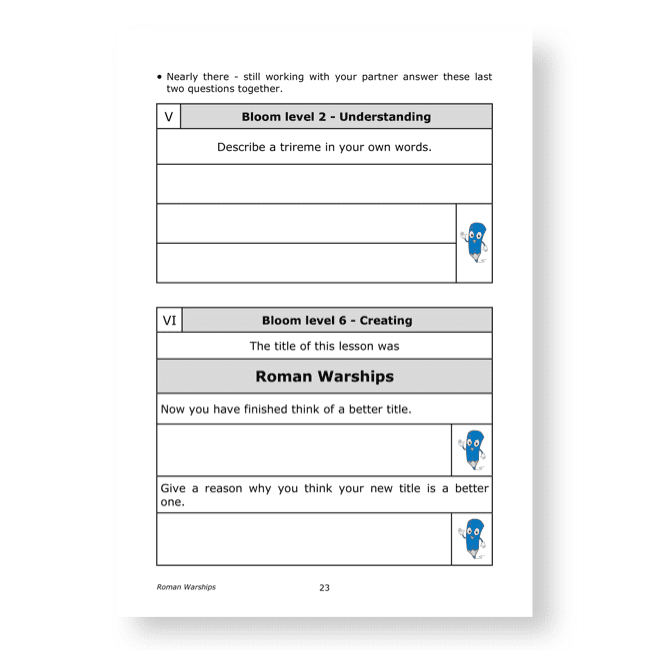
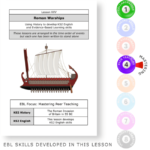
Philipem (verified owner) –
We asked a.i. to review this lesson. This is what it said:
End Your Roman Unit with This Engaging Warship Lesson
Looking for a engaging way to wrap up your Roman Britain unit for upper KS2 students? Check out the lesson “Roman Warships” as the culminating activity in the comprehensive evidence-based teaching resource series.
This multi-layered lesson dives into the innovative trireme warships that allowed the Romans to invade Britain successfully in 55 BC. Students will learn fascinating details like how the Romans brilliantly copied and rapidly produced these advanced ships from the Phoenicians. The lesson also explores the brutal fighting strategies and limited sailing range of the triremes.
By working through the background information and collaborative activities centred around triremes, students will:
– Build knowledge of a key technological advantage for the Roman invasion forces
– Analyse evidence from primary source accounts about trireme design and use
– Develop skills like summarising, labelling diagrams, and describing in their own words
– Practice peer teaching skills by explaining topics to partners
– Experience the benefits of collaborative learning throughout
The Evidence-Based Learning emphasis on peer teaching is perfectly woven into the activities, providing valuable practice for students. As with each lesson, one specific EBL technique is highlighted to progressively build those critical skills.
Whether you’re teaching an ancient civilizations unit in History or want to incorporate engaging topics like trireme warships into your literacy lessons, this resource makes an excellent final lesson. Wrap up your Roman Britain unit in a memorable way!